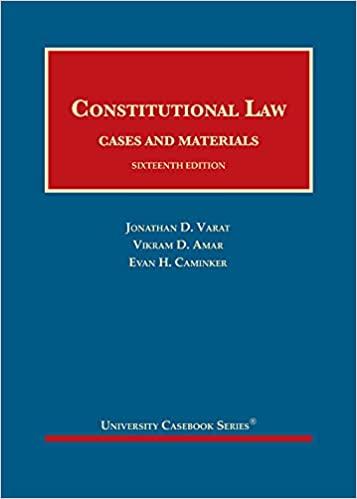Question
Prison health (according to European convention laws) The Applicant, a repeat offender, was arrested and convicted of rape and sentenced to eight years' imprisonment in
Prison health (according to European convention laws)
The Applicant, a repeat offender, was arrested and convicted of rape and sentenced to eight years' imprisonment in 2012 in a Bulgarian detention center. The applicant suffers from epilepsy and has been diagnosed on several occasions with mental impairment. In 2014 the applicant's disability was assessed as profound (first-degree disability); however, it was not until 2016 that the prison commission which examined the applicant with a view to issuing the disability certificates recommended that he be provided with the help of a personal care assistant.
He was detained in several detention facilities. However, his complaints in the present application only concern the period from 6 December 2015 to January 2020. He complains that the medical care provided to him was inadequate, inter alia because he had not been assigned a personal care assistant on an ongoing basis until he was released on 16 January 2020.
The applicant submitted that he had lodged several requests with the prison authorities starting in September 2016, in which he had asked to be assigned a personal assistant. In each of his requests he had indicated the name of the co-detainee he had preferred to be assigned to him. He stated, inter alia, that when he had received a different personal assistant from the one he would have preferred, he had cut his throat and the veins on his hand or harmed himself in other ways. He also indicated that, during the relevant time frame, he had been left several times without a personal care assistant.
In the 2016 prison report, it was noted the applicant's incapacity to maintain personal hygiene, difficulties in adapting and integrating in a group, high irascibility, insufficient self-control and a major tendency to be impulsive, in particular concerning his own self. It also noted the existence of repeated suicide attempts and concluded that there existed an ongoing risk of suicide.
Following a razor-blate incident, he was again admitted to a hospital in December 2017, where he was examined mainly in view of recent acts of self-aggression. He was prescribed medication, and neurological and psychiatric examinations were recommended but not provided.
Later on, the applicant injured himself by inserting a nail in his forehead. He was taken to the accident and emergency department at the hospital, where he was treated for his wound and for his psychiatric condition.
On several occasions, the applicant complaint at both the Court of First Instance and Appeal Court in Bulgaria. Both national courts dismissed the applicant's application, relying on the report's conclusions and on the fact that the applicant's "complex condition" did not prevent him from serving his sentence in prison.
In 2019 he lodged a complaint with the European Court of Human Rights.
Questions
- what would be the legal basis of the Applicant's complaint? Please, explain your answer
- what is here the key legal criterion to be addressed in the Court's assessment?
- what would be the likely outcome of the Court's ruling in this particular case, taking into account relevant case law?
Step by Step Solution
There are 3 Steps involved in it
Step: 1

Get Instant Access to Expert-Tailored Solutions
See step-by-step solutions with expert insights and AI powered tools for academic success
Step: 2

Step: 3

Ace Your Homework with AI
Get the answers you need in no time with our AI-driven, step-by-step assistance
Get Started


